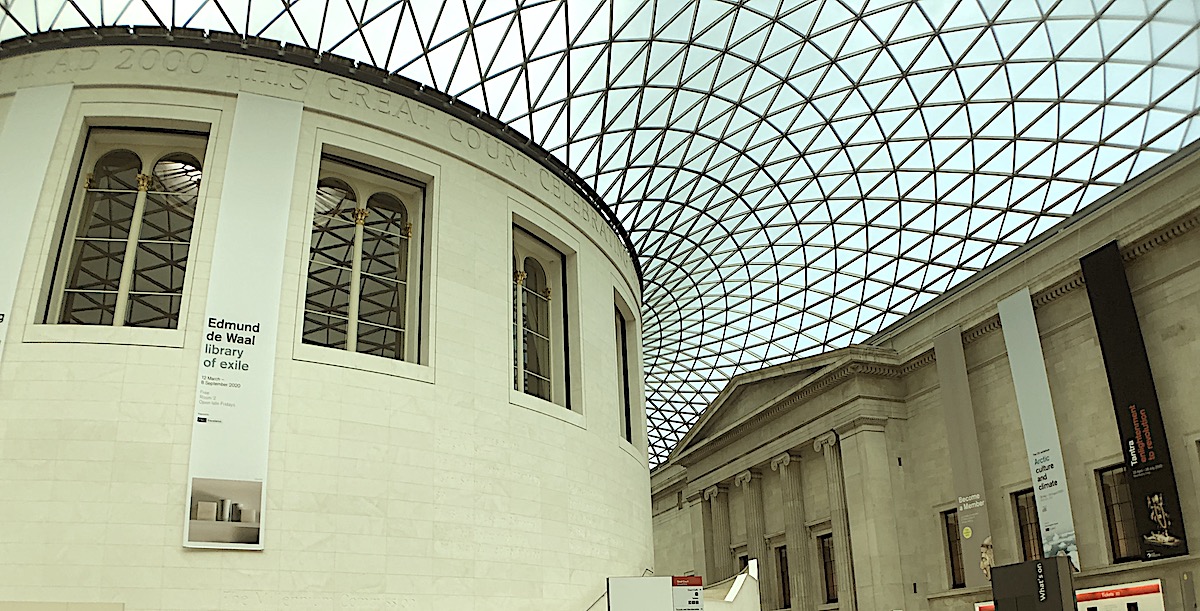BP’s sponsorship of the British Museum is to end. This marks the finish of the fossil fuel giant’s name being used to promote exhibitions and events at London’s leading museum.
The Museum’s Great Court has been the scene of environmental protests for years. This latest announcement of departure follows decisions by many other UK institutions, including The Tate, the National Portrait Gallery, the Royal Shakespeare Company, the Scottish Ballet and the Royal Opera House that have distanced themselves from the corporation. All have ended funding partnerships in recent years due to BP’s failure to clean up its polluting business model. The museum has not officially announced the breaking of ties, but a document seen by the Guardian newspaper has confirmed the news.
Culture Unstained co-director Chris Garrard told the Guardian, which first broke the story. “If it is serious about responding to the climate crisis, the museum must confirm that there will be no future relationships with fossil fuel producers, take down BP’s name from its lecture theatre and roundly reject the climate-wrecking business it represents.”
The British Museum has had a longstanding sponsorship deal with BP (British Petroleum). They have been the largest sponsor of the museum’s activities for over 27 years. The sponsorship deal included support for various exhibitions and events organised by the museum.
It’s worth noting that the British Museum’s partnership with BP will run out at the end of the year and has been controversial and criticised. Environmental activists and cultural campaigners have raised concerns about the ethical implications of an institution promoting a fossil fuel company. In addition, they argued that BP’s involvement undermines the museum’s credibility in addressing climate change and sustainability issues.
Over the years, there have been protests and calls for the museum to end its sponsorship deal with BP. Activists argued that such partnerships allow fossil fuel companies to “greenwash” their image by associating with respected cultural institutions. These criticisms have sparked debates about the ethics of corporate sponsorship in the cultural sector and the role museums play in society.
British Petroleum (BP) is one of the world’s largest oil and gas companies. Founded in 1909, it has grown into a multinational corporation with operations in various aspects of the energy industry, including exploration, production, refining, and distribution of oil and gas products.
BP operates in numerous countries worldwide and has a significant presence in the oil and gas sectors. The company is involved in activities such as offshore drilling, refining petroleum products, and marketing them through its network of gas stations and retail outlets.
Like other major oil and gas companies, BP has faced scrutiny and criticism regarding its environmental impact and contribution to climate change. The company has been involved in several high-profile incidents, including the Deepwater Horizon oil spill in 2010, which resulted in a major environmental disaster in the Gulf of Mexico.
BP has invested in renewable energy projects such as wind farms and solar power, as well as research and development of low-carbon technologies. The company claims to want to become a net-zero carbon emitter by 2050′.
Top Photo © Artlyst 2023

